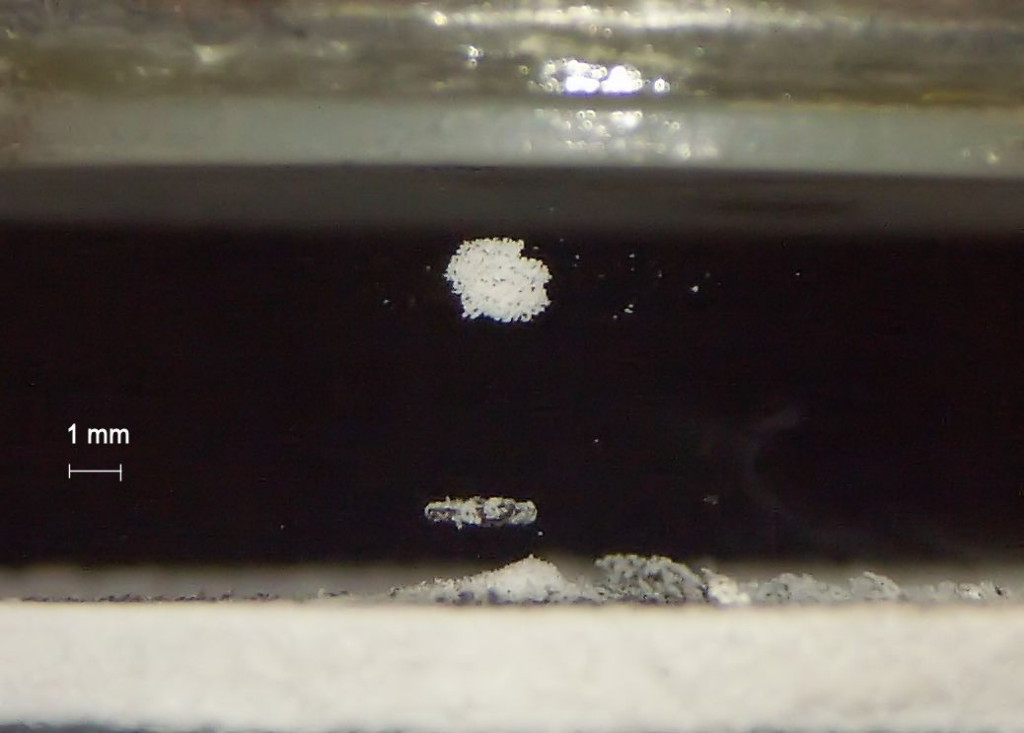
Dr Anita Dawes
Senior Lecturer
Biography
Professional biography
2025 – Present I am a Senior Lecturer in Physics and Postgraduate Research Tutor in the School of Physical Sciences at the Open University.
2019 – 2025 Lecturer in Physics, School of Physical Sciences, OU
2016 – 2019 Leverhulme Early Career Research Fellow - reserach in laboratory molecular astrophysics / astrochemistry. School of Physical Sciences, OU
2013 – 2016 In 2013 I returned to research at the Shchool of Physical Sciences at the OU following a 7-year career break. My return was made possible with a Daphne Jackson Fellowship, co-sponsored by the Open University and Science and Technology Facilities Council. The tailor-made fellowship enabled me to re-train and refresh my skills and regain confidence as a researcher, allowing me to work part-time whilst looking after my young family. Towards the end of the three years, the Daphne Jackson re-training programme paid off and I was successful in securing a Leverhulme Early Career Fellowship, continuing my pre-career-break research in laboratory molecular astrophysics.
2006 – 2013 Career break.
2003 – 2006 Postdoctoral Research Associate, Department of Physics and Astronomy, The Open University; applying Experimental Molecular Physics to Astrochemistry and helping establish the Astrochemistry Laboratory that has now become the Molecular Astrophysics Lab (2017).
2000 – 2003 PhD in Laboratory Molecular Physics, University College London
1996 – 2000 Undergraduate MSci degree in Physics, University College London
Research interests
My research interests are in Experimetnal Molecular Physics applied to Astrophysical environments. I simulate cold space environments such as dense molecular clouds from which stars form (including protoplanetary discs around baby stars or icy surfaces of Outer Solar System bodies) under conrtolled laboraory conditions to study the chemical and physical properties of cosmic ice analogues. My specific interests are:
- creating astrophysical ice analogues under controlled laboratory conditions (in situ vapour deposition, acoustic levitation)
- probing astrophysical ice analogues in situ with a combination of complementary infrared and vacuum ultraviolet spectrocopic techniques, using a unique portable experimental system
- systematically investigating how the physical and chemical properties of ices grown in the laboratory are affected by laboratory parameters such as molecular composition, thickness, temperature, concentration and mixing/layering and how these relate to real astrophysical environments
- specialising in high resolution vaccuum ultraviolet spectroscopy (115 - 340 nm), using synchrotron radiation at the ASTRID2 Synchrotron Facility, Denmark, to determine photoabsorption cross sections of condensed ices and ice mixtures in order to better understand the electronic structure of condensed molecules and quantify photochemical processes
- investigating the role of large condensed phase molecules such as polycyclic aromatic hydrocarbons (PAHs) as constituents of astrochemical ices in influencing chemical and desorption processes
- high resolution laboratory infrared (FTIR) spectroscopy for the interpretation of astronomical spectra in star-forming regions
- investigating the effect of realistric micro-/nano-scale dust grain size, shape and composition on the physical and chemical properties of ices by exploiting the technique of acoustic levitation
- laboratory investigatiion of optical scattering properties of levitated sub-micron dust, ice and aerosol particles in an ultrasonic trap.

Icy soot aggregates grown in the ultrasonic trap as analogues of icy dust particles in star-forming regions of space
Teaching interests
I am currently the Module Team Chair for the Level 1 Module, SM123 Physics and Space.
I was part of the module team for the production of Level 3 Module, SM381 Electromagentism, leading the development of the remote Hall effect OpenScience lab experiement and an interactive screen experiment to investigate Coulomb's law (2019-2022).
As part of the production module team for Level 2 Module, SXPS288 Remote Experiments in Physics and Space, I have been involved in developing a remote Gas Cell OpenScience lab experiment to probe gas samples representing planetary atmospheres, using infrared spectroscopy (2018-2020).
I was a Physics Specialist on the module team for the Level 1 Module S111 Questions in Science (2016-2018).
I was a Topic Specialist on the Level 2 Module SXPA288 Practical Science: Physics and Astronomy (2016-2018).
Projects
Shedding light on JWST ice observations: A laboratory approach to untangling spectral signatures
This project will combine cutting-edge laboratory experiments with James Webb Space Telescope (JWST) observations to investigate the chemical and physical properties of astrophysical ices. These ices, which coat interstellar dust grains, play a crucial role in their journey from dense molecular clouds to star formation, influencing the chemical evolution of nascent planetary systems. JWST’s unprecedented sensitivity is revealing exciting new details about ices in dense clouds, but key uncertainties remain in interpreting their spectral signatures, particularly the distortion of ice absorption bands because of scattering effects – a consequence of grain growth and aggregation. These uncertainties limit our ability to accurately interpret ice band profiles and determine molecular abundances. To address these challenges, we will systematically characterise how ice composition, thermal history, and scattering influence mid-infrared spectra. With high-quality experimental data, this project aims to enhance the interpretation of JWST observations by disentangling the chemical (composition and thermal evolution) and physical (scattering) influences on spectral profiles.
STFC Open 2018 DTP
STFC Open 2018 DTP
The physico-chemical properties and aggregation of interstellar dust and ice
Microscopic icy dust particles in the interstellar medium play a crucial role in molecular synthesis and star and planet formation. Laboratory data is essential for interpretation of astronomical spectra and for building accurate astrochemical models. However most laboratory ices are grown on large (cm-sized) flat substrates, unrepresentative of microscopic 3D fractal-like interstellar grains. Evidence suggests that particle size, structure and composition may profoundly influence the physico-chemical properties of ice. I will exploit novel laboratory techniques, by developing a unique acoustic trap to form and trap microscopic icy dust particles as realistic interstellar icy grain analogues and investigate their physico-chemical properties and aggregation using infrared and ultraviolet spectroscopy and compare to observations. This work has the potential to resolve key Astrochemistry questions that have persisted for decades, whilst bringing together core strands of physics, chemistry and astronomy.
Publications
Book Chapter
Laboratory studies of astrophysical molecules: a new UCL apparatus (2005)
Study of condensed phase molecules and molecular synthesis in astrophysical environments (2003)
Journal Article
A temperature study of methanol interstellar ice analogues (2023)
The rise of an exciton in solid ammonia (2022)
Crystallites and Electric Fields in Solid Ammonia (2020)
VUV spectroscopy of an electron irradiated benzene : carbon dioxide interstellar ice analogue (2019)
The optical absorption spectra of spontaneously electrical solids: the case of nitrous oxide (2019)
Vacuum ultraviolet photoabsorption spectroscopy of crystalline and amorphous benzene (2017)
Photon- and electron-stimulated desorption from laboratory models of interstellar ice grains (2010)
Desorption of hot molecules from photon irradiated interstellar ices (2008)
The spectroscopy and chemical dynamics of microparticles explored using an ultrasonic trap (2008)
Surface science investigations of photoprocesses in model interstellar ices (2008)
The ultraviolet spectrum of condensed methylamine at 25 K (2007)
Low energy 13C+ and 13C2+ ion irradiation of water ice (2007)
VUV Spectroscopy of Extraterrestrial Ices (2006)
VUV spectroscopy and photo-processing of astrochemical ices: an experimental study (2006)
VUV photoabsorption spectroscopy of sulfur dioxide ice (2006)